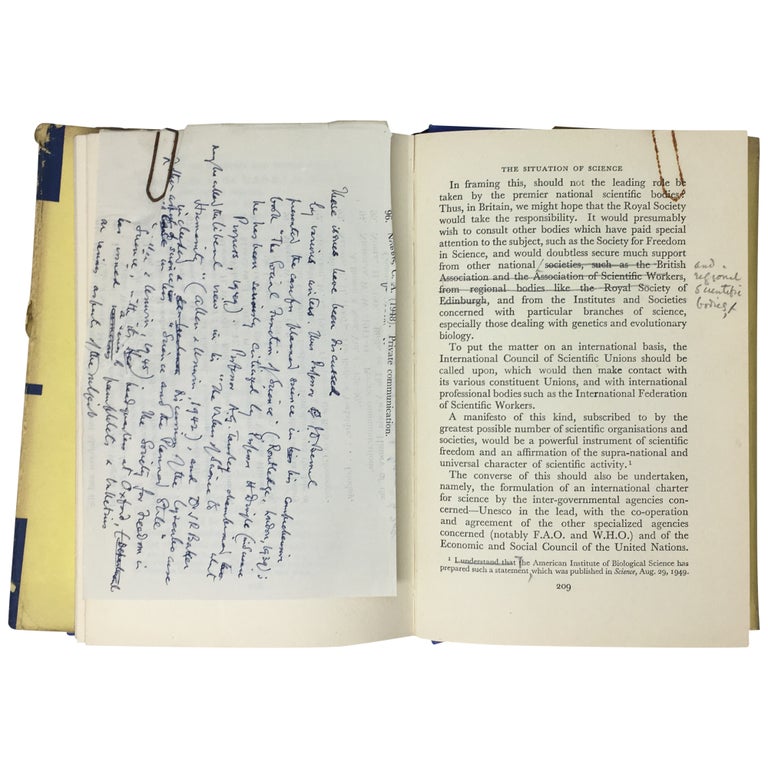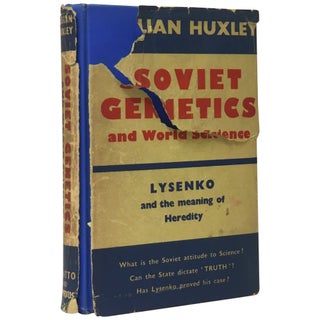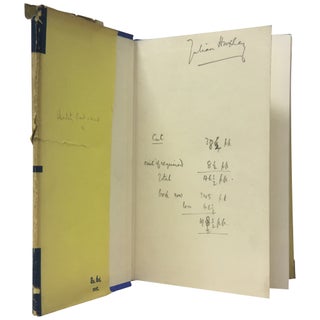Extensively Revised for an Unpublished Second Edition
Soviet Genetics and World Science: Lysenko and the Meaning of Heredity
Notes: Soviet Genetics is Huxley's critique of the agriculturalist Trofim Lysenko's ideas about heredity, which were adopted under Stalin as official Soviet science. Lysenko's theories were idiosyncratic and are somewhat hard to parse, but he emphasized cooperation within and between species in opposition to Darwin's "capitalist" idea of survival of the fittest. He also rejected deterministic heredity in favor of something closer to Lamarckian idea that acquired characteristics could be passed to offspring. Lysenkoism might have been dismissed as just one of a vast number of unscientific ideas about evolution and genetics if he had not been appointed the director of the Institute of Genetics in the USSR. His influence greatly curtailed Soviet genetics research for decades and called into question whether science was an impartial, universal discipline or one governed by ideology.
Julian Huxley, the brother of the writer Aldous Huxley and the grandson of Darwin's most vocal supporter, T. H. Huxley, was one of the most prominent evolutionists of his era. In fact, his book, Evolution: The Modern Synthesis, gave the name to the main thread of evolutionary thinking in the middle of the twentieth century. Huxley traveled to the Soviet Union in 1945 where he attended a lecture by Lysenko, which gave the impetus to this book (published in the US as Heredity East and West: Lysenko and World Science). In Soviet Genetics, Huxley explains Lysenko's ideas and refutes them with genetics, biology, and evolutionary theory. He also considers the political implications of official state science.
x, 245 pages.
Edition + Condition: First edition (first printing). Very good in a good dust jacket. With Julian Huxley's ownership signature on the front pastedown. This copy is extensively revised for a new edition, which does not seem to have been published. The marked changes were not used for the US edition and the 1969 reprint reproduces the American text in facsimile.
The changes in this copy reflect extensive pruning to the text—according to notes on the front free endpaper, Huxley proposes cutting about 20% of the content. He also makes corrections, word changes, and amendments to most pages. By my count, 202 of the 247 text pages have one or more marked changes. In addition, a fifteen-line handwritten addition is affixed with a paperclip with a point of insertion indicated in the text. Huxley also made notes on the otherwise blank dust jacket flaps.
While bound in book form, this is essentially a hand-corrected typescript of an unpublished second edition. As such, it provides probably unique insight into the ideas and arguments that Huxley felt were the strongest in the book, in contrast to the extensive cuts he proposed to make.
Publication: London: Chatto and Windus, 1949.
Item No: #35160
Sold





